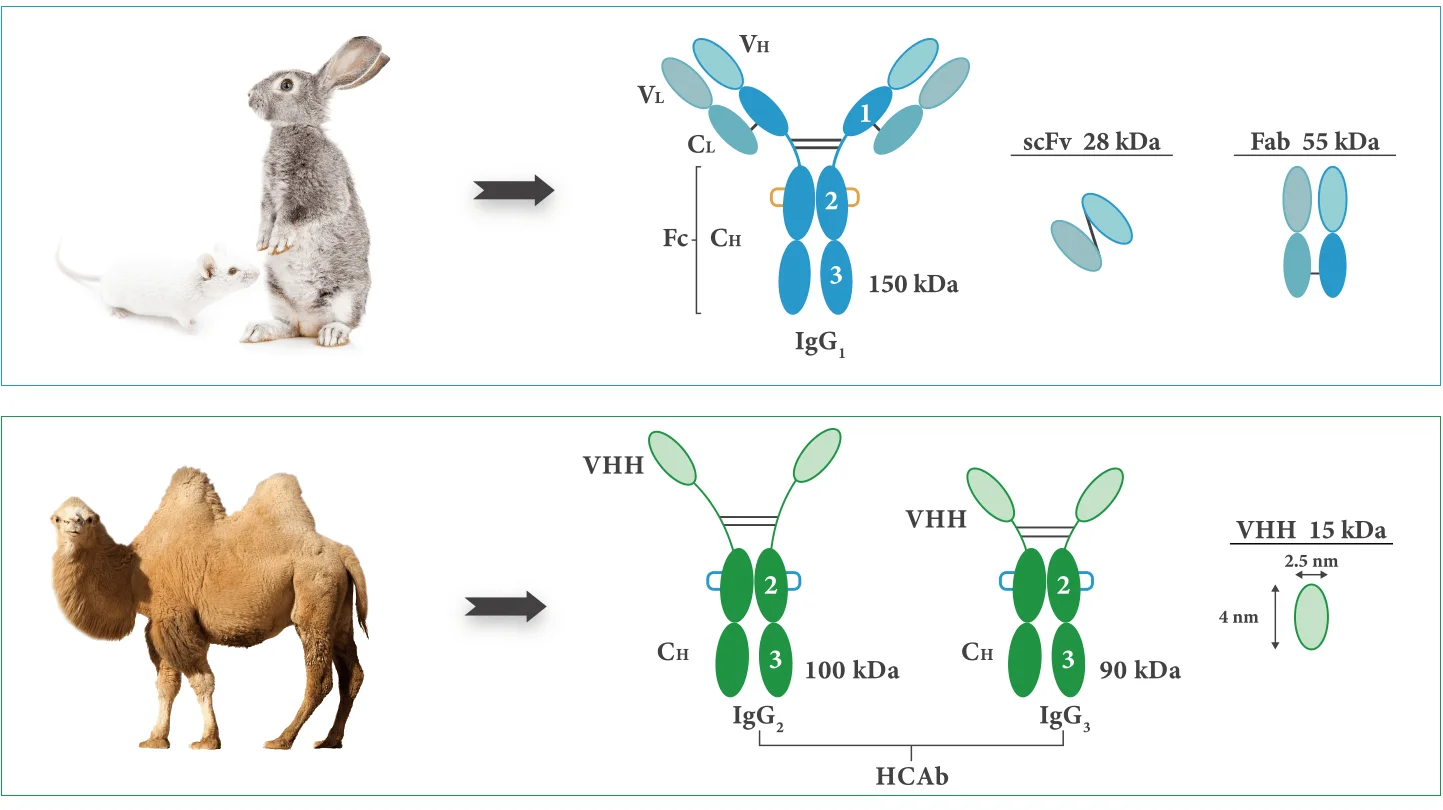 +1 302-235-9792
+1 302-235-9792
OVERVIEW
Nanobodies are single-domain antibody fragments derived from heavy-chain-only antibodies naturally found in the peripheral blood of camelids. With a molecular weight of just ~15 kDa—approximately one-tenth that of conventional IgG antibodies—nanobodies can access disease sites that are unreachable by traditional antibodies and bind to hidden or cryptic epitopes. Their extended CDR3 loops allow deep penetration into protein cavities, enabling high antigen-binding affinity. Unlike conventional antibodies, nanobodies avoid heavy-light chain mispairing, and their structures are stabilized by additional intradomain disulfide bonds and hydrophilic mutations. These unique features endow nanobodies with exceptional stability, high solubility, ease of expression, and suitability for genetic engineering, making them a powerful and promising tool in research, diagnostics, and therapeutic development.

CUSTOM NANOBODY SERVICES BY GENE UNIVERSAL
 Nanobody immune library construction and antibody screenin
Nanobody immune library construction and antibody screenin
-
Animal Immunization:
Healthy, immunologically naive alpacas of suitable age are selected for immunization. Once the desired immune titer is achieved, peripheral blood is collected via the jugular vein, and PBMCs are isolated for downstream processing.
-
Library Construction:
Total RNA is extracted from PBMCs and VHH fragments are amplified and cloned into a phagemid vector, followed by electroporation to construct an immune phage display library. Typical library capacity reaches 1 × 10⁹ CFU/mL.
-
Antibody Screening:
Solid-phase or liquid-phase panning methods are available. After 3–5 rounds of increasingly stringent selection, 50–100 diverse clones are identified for further analysis.
-
Expression & Validation:
5–10 unique nanobody sequences are expressed and validated to confirm specificity and functionality.
 Nanobody Natural & Semi-Synthetic Library Screening
Nanobody Natural & Semi-Synthetic Library Screening
An efficient solution for rapid nanobody discovery—ideal for toxic antigens, small molecules, and challenging targets.
-
Ultra-High Library Capacity:
Proprietary natural nanobody library with a capacity of nearly 100 billion clones.
-
Superior Diversity:
Derived from the peripheral blood of over 100 camels and alpacas, combined with semi-synthetic libraries to ensure broad epitope coverage.
-
High Accuracy:
100% VHH-positive rate, guaranteeing reliable nanobody candidates.
 In Silico Nanobody Library Screening and Validation
In Silico Nanobody Library Screening and Validation
-
1.A virtual VHH library is generated by introducing random mutations into CDR1, CDR2, and CDR3 based on natural nanobody sequences.
-
2.Deep learning models trained on antigen–antibody complex structures predict binding modes and identify high-potential VHH candidates.
-
3.Selected nanobodies are expressed in mammalian cells and tested for antigen specificity and affinity.
RELATED SERVICES
Request A Quote

Download and fill out the order form below Order form

Please send e-mail to us for quotation sales@geneuniversal.com
Online Request Submission
Have a question about sales or support? Our team is ready to help!


